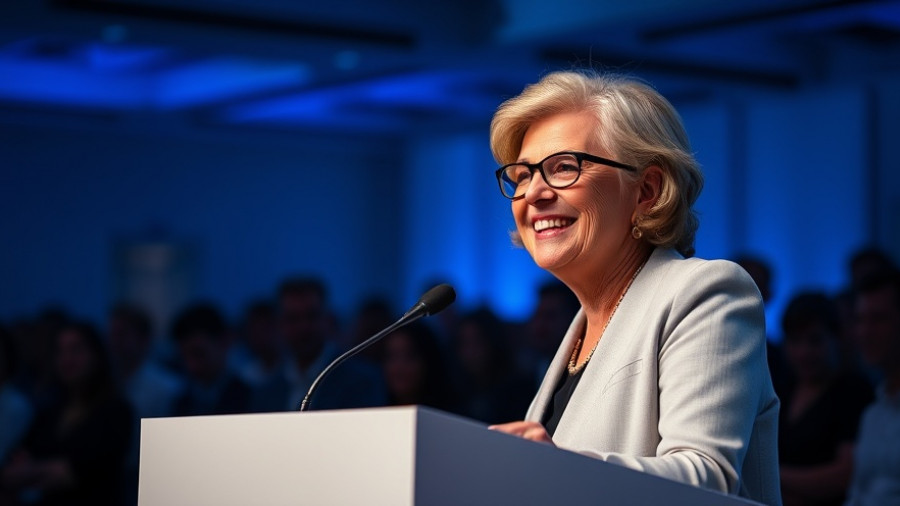
Francesca Albanese's Stark Warning on Gaza
In a haunting address at the 23rd Nelson Mandela Annual Lecture, Francesca Albanese, the UN Special Rapporteur on the Occupied Palestinian Territories, laid bare the apocalyptic state of affairs in Gaza, equating the ongoing violence and suffering to a form of genocide. Her words resonate now, more than ever, with international audiences as the humanitarian crisis continues to escalate, sparking urgent calls for action from global leaders.
The Burden of Colonial History
Albanese's commentary touched on the intricate historical context of the Israeli-Palestinian conflict, emphasizing that the plight of Palestinians cannot be viewed in isolation. She likened their struggle to broader themes of colonialism and domination, stating, "The occupation of Palestine must be understood as part of a broader project of domination." This nuanced perspective invites contemplation on how historical injustices shape present-day human rights violations.
International Law's Role
Albanese also referenced South Africa's pivotal actions at the International Court of Justice (ICJ), highlighting a renewed faith in international law amidst a backdrop of pervasive political apathy. By positioning itself as a defender of Palestinian rights, South Africa offers a model for how nations can leverage international platforms against injustice. This recognition of legal frameworks, including the recent ICJ advisory opinions, suggests a critical pathway toward resolution, underscoring the obligation of states to uphold their responsibilities under international law.
Interconnected Global Struggles
The current state of Gaza is not merely a regional issue but part of a global narrative surrounding oppression and resistance. As Albanese poignantly articulated: "The Palestinian struggle for freedom stands at the heart of the movement toward a truly decolonial world order." This assertion invites professionals across various sectors to reflect on the implications of their work and how solidarity with oppressed populations can manifest in action.
Political Ramifications and Future Directions
Looking ahead, the words of Francesca Albanese resonate as a clarion call for political realignment. With the upcoming 2024 general elections in South Africa, the response to the Gaza situation will likely be a hot-button issue. Politicians from the governing African National Congress (ANC) to opposition parties like the Democratic Alliance (DA) and Economic Freedom Fighters (EFF) will need to consider their positions on international humanitarian issues, especially concerning voter turnout and public sentiment on foreign policy.
Solidarity Amidst Censorship
Since exposing the harsh realities faced by Palestinians, Albanese herself has been targeted for sanctions by the U.S. and Israeli governments for her candid stance on these issues. The support she receives from organizations like the Party of the European Left underlines the necessity of amplifying voices that speak truth to power. It also prompts professionals and activists alike to reflect on the role of media freedom and the responsibility of civil society to uphold human rights.
Path Towards Accountability
As we navigate the complexities of modern geopolitics, the challenge remains to engage authentically with the narratives of marginalized communities. Albanese’s insights compel professionals, policymakers, and everyday citizens to challenge the status quo and advocate for a future grounded in justice and equity. Her statements underscore not only the urgency of the current crisis but also the potential for transformative policy changes that could resonate far beyond the borders of Gaza.
In light of these insights, it’s time to confront the complicated realities presented by the ongoing conflict. As members of a global society, we must take a collective stand to express solidarity with affected communities and advocate for transparent dialogue rooted in empathy and understanding.
 Add Row
Add Row  Add
Add 




Write A Comment